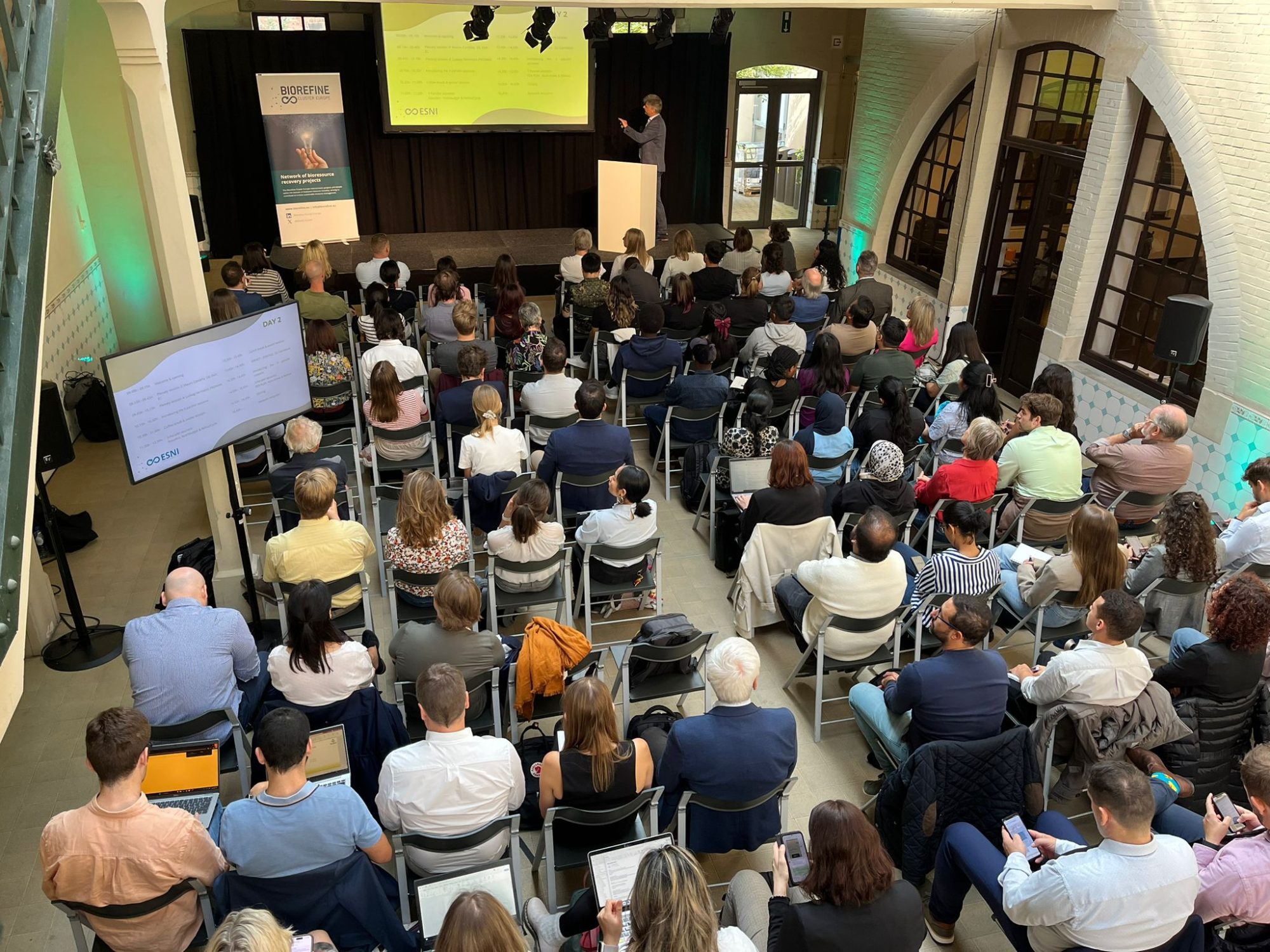
On 18th and 19th September, the 5th edition of the European Sustainable Nutrient Initiative Conference (ESNI) took place in Brussels, organized by the Biorefine Cluster Europe with the support of the BETA TC of the UVic-UCC. This event is a reference for professionals, researchers and policy makers involved in moving towards the sustainable management of nutrients, especially nitrogen and phosphorus, as over the years it has created a community to address the main environmental and economic challenges directly related.
The initiative helps to promote innovative technologies and new business models, as well as practices to improve soil health, reduce water pollution or reduce greenhouse gas emissions. Addressing all these issues is a key factor in helping Europe achieve greater resilience and its sustainable development goals.
Over the course of a day and a half, attendees were able to engage in discussions on nutrient recycling and reuse, addressing its technological, economic and social benefits. The conference featured nine parallel interactive sessions, a poster presentation of EU-funded research and networking opportunities among more than 160 experts in the bioresource recovery sector.
ESNI 2024: the future of nutrient recycling
The 2024 conference sessions, featuring four projects coordinated or actively participated in by CT BETA, focused on key goals: reducing nutrient loss, improving resource efficiency, and minimizing environmental impact. These objectives were addressed through stronger stakeholder collaboration and the dissemination of best practices. The comprehensive programme provided attendees with a unique opportunity to explore the latest innovations and strategies aimed at transforming nutrient management across Europe in a holistic, cross-cutting manner.
Among the highlights of the programme, representatives of CT BETA presented the methodology for the amplification of innovation results in the field of nutrient management being developed by the NutriKnow project, as well as the methodological proposal to improve the calculation of the environmental footprint of new biofertiliser products, carried out by experts in Life Cycle Analysis of CT BETA itself through NOVAFERT.
On a more political level, the NENUPHAR project organised an interactive session to continue working on the identification of barriers and opportunities related to regional, national and European legislative frameworks, and NutriBudget presented a new platform that should help to align the scientific, political and agri-food sectors with regard to the management of nutrient flows between European regions with different needs.
